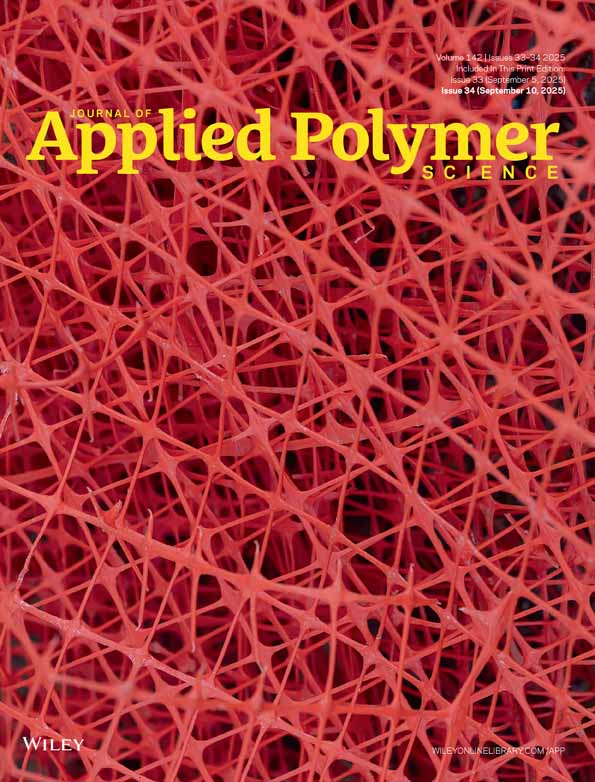Synthesis and thermal analysis of emulsion terpolymers of N-phenylmaleimide, methyl methacrylate, and acrylonitrile
Abstract
Terpolymers of N-phenylmaleimide (PMI), methyl methacrylate (MMA), and acrylonitrile (AN) were synthesized by emulsion polymerization. The thermal properties of the terpolymers, at different PMI and AN feed contents, were investigated by TBA, TGA, and the Vicat softening point test. The results show that the glass transition temperature (Tg) and decomposition temperature of the terpolymers increase with increasing PMI feed content. Furthermore, the Vicat softening points of the terpolymers increase with the PMI feed content. The M̄w and M̄n of the terpolymers were also determined by GPC. The results show that the M̄w and M̄n of the terpolymers have a maximum value in the range of 0–30% PMI feed content and decrease with an increasing AN feed content. The mechanical properties (tensile strength and impact strength) of the terpolymers decrease with an increasing PMI feed content and increase with an increasing AN feed content. © 2001 John Wiley & Sons, Inc. J Appl Polym Sci 81: 2455–2462, 2001




